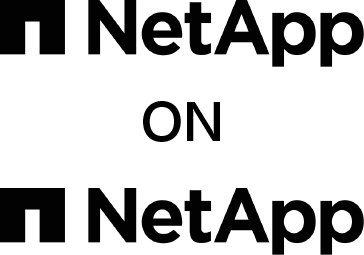AFF supports NetApp’s greenhouse gas reduction goals
For over a decade, sustainability efforts have been top of mind for enterprise organizations, with defined goals around reductions in greenhouse gas emissions commonplace. NetApp is no different, as we’ve announced science-aligned goals to reach by 2030:
– 42% reduction of Scope 1 and Scope 2 emissions (Produced by the company directly or indirectly through electricity, heating, or cooling purchases)
– 50% intensity reduction of Scope 3 emissions (Produced by our value chain)
They’re ambitious, but achievable, goals that enable us to continue to reduce our carbon footprint. Of course, as an internal function, NetApp IT is a significant part of this. Powering the enterprise is a huge undertaking that, left unchecked, can have a negative environmental impact.
Our own emission reduction efforts include using our own products that have a reduced carbon footprint. This starts with NetApp AFF (All Flash FAS) storage systems. We have been steadily moving towards AFF for data center storage for several years. Older FAS nodes are inefficient compared to AFF solid state drives. The economic business case to move to AFF is strong, as application performance is measurable improved. The sustainability business case is equally strong.
NetApp AFF is a needle-mover for businesses looking to reduce their own emissions. The reduced impact of the technology makes it a greener choice at every step of the product life cycle. Data centers are using an estimated 1-2% of the world’s electricity, with storage making up 10-15% of data center power needs. This is an area where small changes can have a significant impact.
Energy Efficiency
NetApp AFF systems are designed to deliver superior performance while minimizing energy consumption. By leveraging modern compressions techniques, AFF optimizes storage utilization. This means reduced power consumption and a smaller carbon footprint.
Data Center Space Optimization
The compact and high-density design of NetApp AFF storage systems allows organizations to maximize their data center space. By consolidating storage infrastructure and reducing the physical footprint, we’re optimizing our data center layout. This minimizes data center requirements and can even mean lower real estate costs.
Enhanced Data Management and Tiering
AFF offers advanced data management capabilities, including automated tiering and storage efficiency features. By intelligently moving data to the most appropriate storage tiers based on access frequency and importance, we are able to reduce overall storage requirements, minimizing the number of drives needed, and reducing power consumption.
Extended Product Lifespan
AFF has fewer moving parts – there’s no spinning disk – meaning that there is less wear and tear on mechanical systems. This means longer lifespans and fewer retired drives.
Cloud Integration and Flexibility
AFF integrates seamlessly with our hybrid cloud strategy, which enables us to seamlessly move data between on-prem and cloud environments. Here, we optimize resource utilization and avoid unnecessary storage expansion. We’re finding new ways to operate more efficiently and avoiding deploying unneeded infrastructure.
The Final Word
NetApp AFF stands at the forefront of sustainable storage solutions, empowering NetApp IT and our customers to achieve their environmental goals. By reducing energy consumption, optimizing data center space, improving data management, and extending product lifespan, NetApp AFF offers tangible sustainability benefits that impact the planet – and the bottom line.


